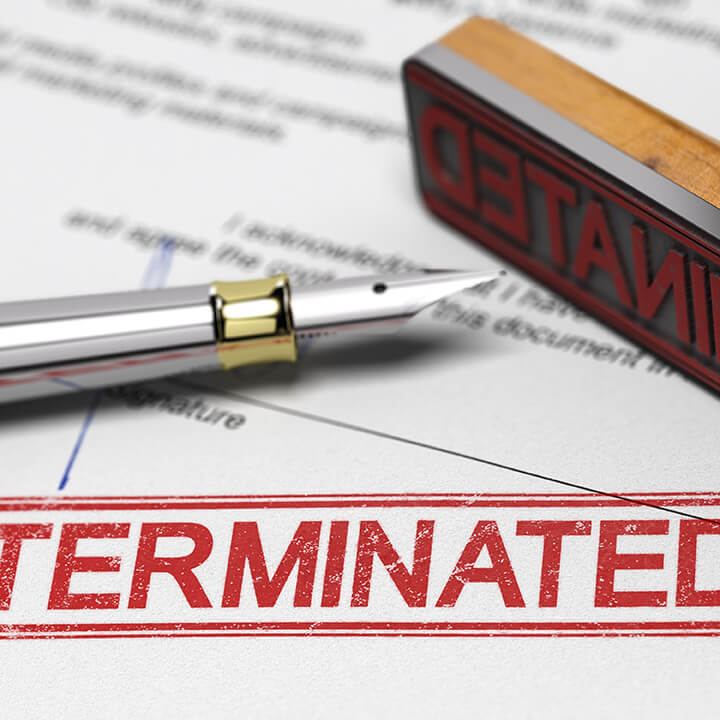Energy blackouts: Mitigating risks for businesses
22nd November 2022
Last month, the National Grid’s Electricity System Operator warned that the UK could potentially face three hour rolling energy blackouts this winter, as part of a contingency plan to safeguard supply. It is unlikely that such a drastic step will need to be taken. However, with warnings having been given, businesses should ensure that they implement suitable policies, procedures and practical measures to protect employees, to facilitate business continuity, and to counter any potential complaints or claims should energy blackouts actually go ahead and cause disruption.
In this article, Walker Morris’ Commercial Dispute Resolution, Supply Chain and Infrastructure & Energy experts Nick Lees, Nick McQueen, Gwendoline Davies and Ben Sheppard offer legal and practical advice to help businesses keep trade moving, and to mitigate risks potentially associated with energy blackouts.

What problems and risks might energy blackouts pose for businesses?
The problems energy blackouts might pose will differ from business to business. It is not possible to identify every possible risk scenario. However, some of the below ‘brainstormed’ risks will be common to many businesses. This article also aims to help prompt senior managers and in-house counsel to more comprehensively anticipate the particular problems that may affect their own businesses.
Some of the likely risks are obvious. An energy blackout will involve the temporary cessation of vital commodities such as lighting, heating and refrigeration. That will impact working conditions and, in many cases, employees’ ability to continue working at all. Depending on the sector/business, it may impact the ability to continue/keep open at all during affected periods. For example, businesses within the leisure and catering sectors will be severely affected by an inability to light and heat premises frequented by consumers, as well as by an inability to store or serve food and drink safely at the correct temperature. A lack of lighting may prevent shops opening during dark mornings and afternoons/evenings and may impact the ability to operate tills, doors, lifts and other IT-related, energy-dependent equipment. Factories and storage/logistics depots may struggle to operate their automated, IT-dependent systems. Of particular concern, perhaps, will be the likely impact on the healthcare sector, where so many of today’s medical records and care-related communications are held and conducted online, and where so many treatments are dependent upon IT and machinery that require electricity.
Some risks potentially arising from energy blackouts are indirect and/or less immediately obvious. Quite apart from IT operational failings, what about IT security vulnerability during system shutdowns? And what about security risks more generally, for example where buildings or restricted areas are protected by IT/electricity-dependent systems? What if employees can’t get to work, at all or on time, because of public transport failures or an inability to charge electric vehicles? What if energy blackouts prevent disabled employees or visitors from being able to access certain premises or vital services? In addition to apparent health and safety/regulatory concerns, what about employee wellbeing more widely? Having to work in additionally challenging conditions may be contrary to employees’ statutory or contractual rights and might negatively impact physical or mental health. For example, where employees are already experiencing stress, perhaps arising from personal/health/financial concerns, changes to working conditions or patterns may exacerbate the situation, including potentially causing or increasing worries about job security overall.
And then there are a raft of supply chain-, contract- and operational-related risks which could be occasioned by temporary energy blackouts. The mooted three hour rolling energy blackouts, which would occur at different times across different parts of the UK, could result in a ‘swings and roundabouts’ scenario. Different businesses, or even different parts/departments/employees within any individual business, could be affected at different times. That could make things easier or more difficult to manage, depending on the particular business. Energy blackouts could also cause supply chain disruption at a variety of levels. Sometimes an energy blackout could leave businesses vulnerable to contractual failings by counterparties, and sometimes it could prompt default and liability on the part of businesses themselves. In addition to commercial contract failures, some businesses may find themselves in breach of conditions in their leases. Perhaps landlords will be unable to supply services to which they have committed. Perhaps tenants will fall foul of ‘keep open’ provisions.
And what about the more long-term effects of energy blackouts? The financial implications of a business defaulting on commercial or lease terms can prove far-reaching. Similarly, businesses dependent on supply or custom from other businesses or individuals who themselves suffer financial harm this winter may have to scrabble for new suppliers or customers, and to deal with contractual and commercial fall-out, in the months to come.
Practical and legal measures to mitigate energy blackout-related risks
So what can businesses do to protect themselves and their employees in the face of potential energy blackouts this winter?
- Perhaps the first step that any business should take is to assemble a business continuity team comprising key staff from all crucial areas (legal, operational, HR, financial, etc). The team can then undertake a business-wide commercial, operational and contract review to identify areas of vulnerability, and therefore where policies, procedures and practical measures might be needed.
- Leading on from the above, businesses should review any existing business continuity/disaster recovery policies, processes and practices, to see whether they are fit for purpose in light of potential rolling temporary energy blackouts. Businesses should make sure to cater for random and on-going outages, as well as one-off major incidents, as risks and requirements may differ.
- Also leading from the above, businesses should identify and then prioritise the most essential systems/areas. The implementation and/or review of any existing risk assessments and/or any map of digital assets could form a helpful part of this process.
- Any operational/business continuity review should consider areas where energy usage or employee productivity can be flexible. For example, are there any processes or employees whose timings or working patterns can be changed to accommodate energy blackouts? (The terms of any affected commercial and/or employment contracts will need to be considered, and expert legal advice may be required.)
- Businesses should consider acquiring/using backup generators to avoid or minimise disruption to energy supply. Uninterruptible Power Supply (UPS) units can work offline and can therefore mitigate priority risks. UPS units should be tested regularly and should be kept under warranty. Staff should be trained as to UPS units use and maintenance.
- Where possible, businesses could consider the acquisition and use of empty offices/premises on standby.
- Where possible, businesses should make use of diversified power feeds. That might involve using existing solar panels. (In terms of future-proofing, our recent article highlighted how the installation of rooftop solar can be a win:win for commercial landlords and tenants. Recent innovations in the efficiency of dye-sensitized solar cells (DSCs) has also opened up new commercial possibilities for transparent solar panels to be used in place of windows.)
- In many cases, off-site operational resilience will have been tested over the last couple of years as a result of the pandemic. Businesses could revisit homeworking and other measures which were put in place to mitigate Covid transmission and lockdowns, in case any of those could also assist in the case of energy blackouts. Any such plans should take into account the possibility that, in relation to potential energy blackouts, however, the same problem could occur at alternative locations/employees’ homes, albeit potentially a different/staggered times.
- Businesses may wish to undertake advance financial planning for scenarios where trade, income and/or productivity shut down, but outgoings such as rent and staff wages still need to be paid. In some circumstances, temporary lay-offs, short-time working or asking employees to take annual leave may be available and may assist. In some cases rent and other liabilities may be subject to temporary cessation, business interruption insurance or re-negotiation. Businesses should seek specialist, tailored advice in relation to all such potential measures, however, as there could be legal ramifications.
- Some businesses will be able to make an advance application to have their premises designated as “Protected Sites” under the Electricity Supply Emergency Code – for example where the business provides certain essential services which address national or regional critical need or public health and safety. For advice and assistance in that regard, please contact our dedicated Infrastructure & Energy
- Where, as a result of the impact of energy blackouts, a business wishes to extricate itself from, or avoid potential breach of, or re-negotiate the terms of, a contractual arrangement, legal options such as frustration or force majeure may assist. Neither of these are necessarily easy options, however. Again, tailored specialist advice will be required. General legal and practical advice in relation to frustration, force majeure and termination of commercial contracts is contained in these earlier Walker Morris’ briefings.
- Finally, communication is key. That could range from encouraging staff members to make sure they keep all their devices fully charged, or reassuring employees about what the business is doing to identify and mitigate risks posed by potential energy blackouts, to keeping lines of communication open with counterparties in case flexibility and practical solutions can minimise disruption or hardship. Staff training and effective, well-thought-through internal and external comms can only assist. Maintaining positive employer/employee and counterparty relationships can go a long way to avoiding or mitigating problems or disputes.
Energy blackouts and mitigating risks: How Walker Morris can help
Walker Morris’ Commercial Dispute Resolution and Supply Chain specialists are experienced and expert in dealing with all aspects of commercial disruption and dispute. Working cross-discipline with our dedicated Infrastructure and Energy specialists, as well as with our specialists in Employment, Regulatory and Commercial, we are ideally placed to provide business- and case- specific advice to help anticipate and mitigate issues which could arise if threatened energy blackouts occur this winter.
In the event that any complaints or claims follow energy blackouts and consequential commercial disruption, we would also be able to provide urgent, sensitive and strategic dispute resolution advice.
Please contact Nick Lees, Nick McQueen, Gwendoline Davies or Ben Sheppard today, for proactive practical and legal advice.






